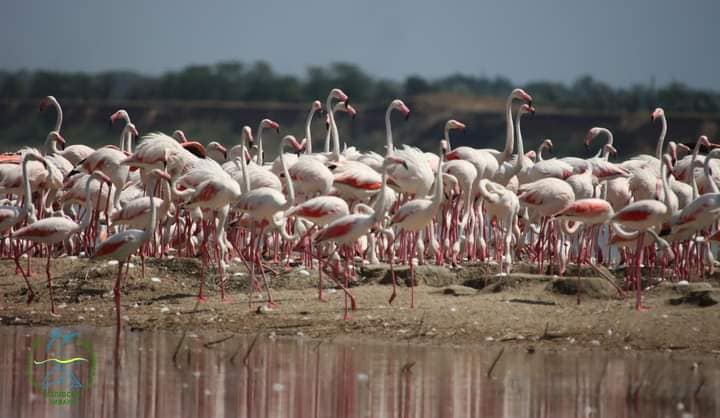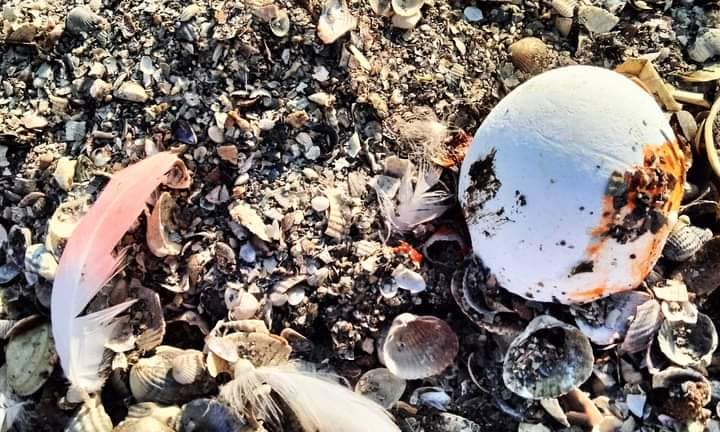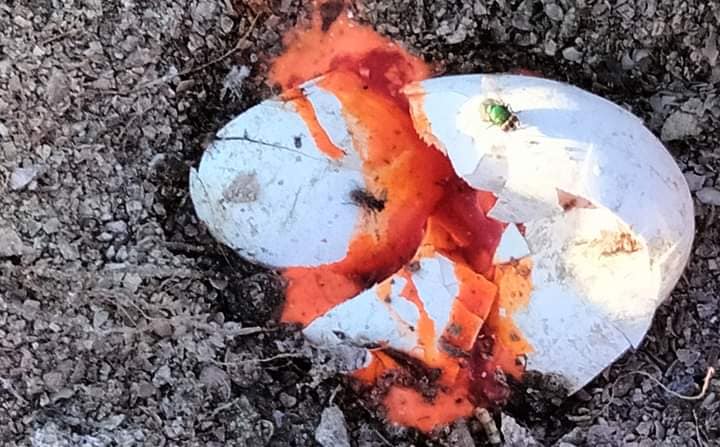In 2023, the National Nature Park "Tuzly Estuaries" saw its first nesting of pink flamingos, marking a significant event for the Odessa region as the birds successfully hatched around 200 chicks. However, persistent Russian attacks, accompanied by noise and explosions, have frightened the flamingos, causing them to abandon their nests and leaving their eggs unattended. This has allowed aggressive long-legged gulls to destroy the flamingo nests and eat their eggs.
According to Ivan Rusev, the flamingos remained in the estuaries throughout 2023, but left Tuzly Estuaries on January 1, 2024, due to continuous noise from drones and military actions. The birds were later spotted in Bulgaria and Turkey. In the spring of 2024, over 1,000 flamingos returned to the national park and began rebuilding their nests but faced numerous challenges.

From the start of nesting, the flamingos were disturbed by the constant noise from military operations, especially from unmanned aerial vehicles (UAVs). The nighttime drone noises particularly frightened the birds, causing them to leave their nests.
In the wartime conditions, aggressive yellow-legged gulls nesting nearby took advantage of the situation. When the flamingos left their nests due to the noise, the gulls quickly destroyed the flamingo clutches. Known for their aggression, these gulls actively demolished the nests and consumed the unattended eggs.


The nesting sites of the flamingos are a protected area of the national park, making any measures to prevent the gulls' negative impact on the colony prohibited. This has made the flamingos even more vulnerable to attacks.
Recently, the gulls have completely destroyed the flamingo colony, forcing the birds to leave Tuzly Estuaries. Some flocks of flamingos have appeared in Kuyalnik National Nature Park and other coastal estuaries.





















